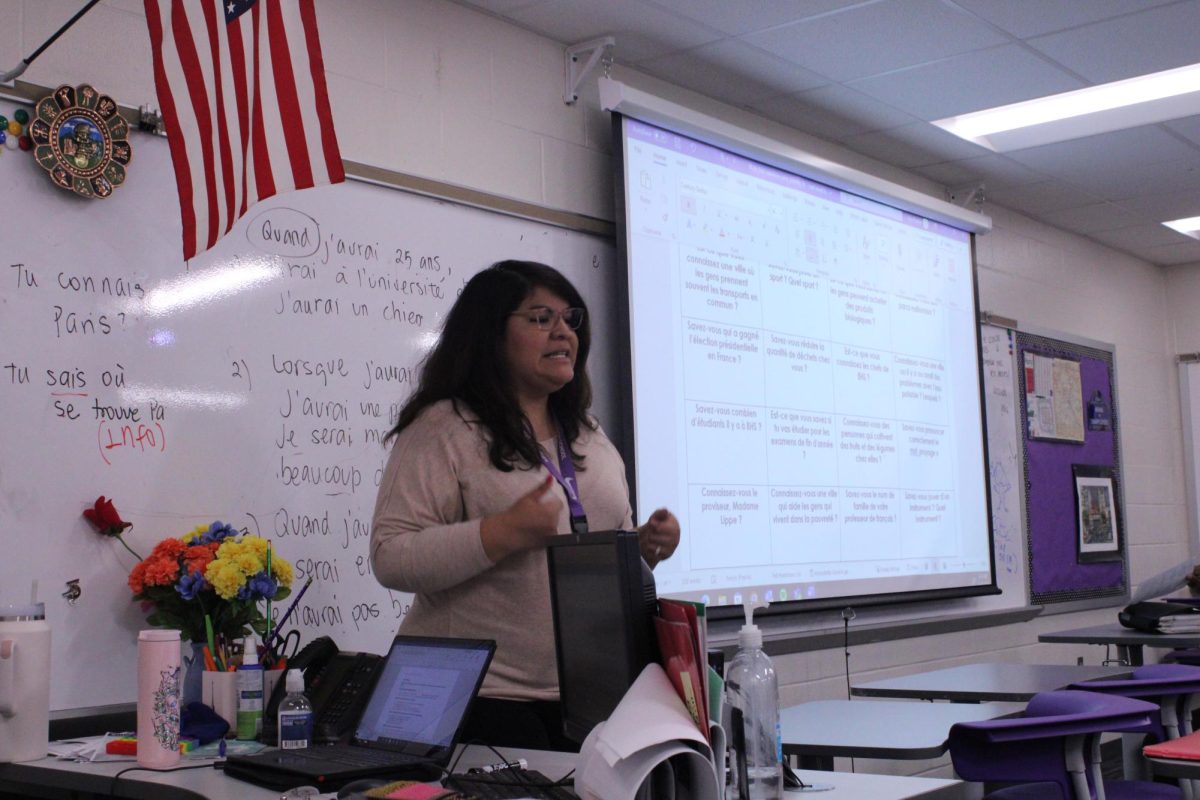As English speakers, we often forget about other languages. English is a primary language spoken around the world. English, ironically, is a second language across vast swatches on the globe. But as English speakers, most of us are in the position where languages as romantic as French or as profound as German are considered the second language choices amongst U.S. high schools. BHS consists of three options for world languages: You’re either a German, a French or a Spanish student! But the question arises: which one are you and which one should you be? Is there one more beneficial than the other?
Sophomore Spanish 2 student Angelina Naguib (Jojo) offers her opinion on this debate: “The Spanish language in general has a lot of cognates which are words that look like they’re similar to English words,” Naguib said. “I figured that it would be easy to learn!” Naguib even recommended this class to her sister insisting, “It’s not that hard. It’s an easy A basically!”
If Naguib had to give a (hypothetical) estimate of how many students in Spanish succeed and understand the concepts, she would give a 40-50%, about half the students in her class. “I’ve seen lots of people actually not succeed in taking that class. Like, I’m sure they know it in their brains and in their mind, but they just don’t have a very good accent. I don’t want to judge based on what I hear, though,” Naguib shared.

Junior Sarah Lee is taking French 2. She is intrigued by French culture and hopes to visit France with her dad post-graduation. “I like the way you enunciate words in French,” she said. “It’s a very beautiful thing.”
Interestingly enough, Lee ranks French at an eight based on how hard it is with 10 being the hardest and one being the easiest. “Keeping up with the different ways to pronounce things because of accent marks is challenging,” Lee explained.
Lee admires the inspiration France has had on American society. She thinks French is an important language to learn because of how implanted it is in our country. “I’ve noticed recently, there’s a lot of French influence and a lot of their things, especially in the US, like specifically since I lived here,” she observed.“I think it can be pretty important to at least try and learn French.”
Last but certainly not least is German. Junior Ester Nofsinger takes German, and she is in her fourth year of taking the class with six years of total experience of German-learning. Some background information on her is that she lived in Germany for some time but was born in the U.S. She definitely recommends German for upcoming freshman.

“German is a small class, and if you want to be in a class with your friend, that’s probably the one place to do it, because there’s not many people taking German,” Nofsinger said. “Additionally, I don’t think anyone I know of has failed that class or struggled, meaning a C or under,” Nofsinger said.
However, it is important to reiterate that most students who take German, especially German 4 appear to have a true dedication to the language. “The further you went [in the German classes], you saw people who were more serious about taking it, because in one, two and three, you need three for honors, for the credits, and then in four, people are more serious there because they’ve already gotten the credit, but they’re still doing it for the language itself,” Nofsinger said.
It’s essential to follow your instincts and personal interests when picking a language. High school students Angelina Naguib, Sarah Lee and Ester Nofsinger have had varied challenges and rewards of learning Spanish, French and German. Each language offers its unique set of benefits and difficulties, making it crucial for students to consider their passion for the language, its cultural significance and their personal learning style when they make the decision.
Whether it’s the familiarity of Spanish, the allure of French culture or the dedicated community in German classes, embracing your preferences can lead to a fulfilling fun language learning journey. Ultimately, the decision should be guided by your individual inclinations, to ensure a more engaging, successful language learning experience. “Languages are useful to learn, especially because of how vast the United States is,” Lee said.



























Sarah Woodrufg • Sep 21, 2024 at 11:15 am
Great Article!